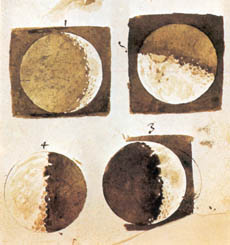Natural Science Overview and History
- Milestones of Science by . A survey of major figures and discoveries in science, with obvious admiration and understanding of their significance as well as science's dependence on rationality and the inductive method. It has lavish and fascinating photographs.
- The Ascent of Man by . The development of man from primitive beginnings through his greatest achievments.
- The Discoverers by . A History of Man's Search to Know his World and Himself.
- Longitude, The True Story of a Lone Genius Who Solved the Greatest Scientific Problem of His Time by . The heroic saga of John Harrison, who finally solved the problem of determining longitude at sea and thereby opened up the world to safe navigation and trade.
- Seeing and Believing by . The history of man's search to understand the heavens and an illustration of the development and progress of scientific knowledge.
- Newton's Gift, How Sir Isaac Newton Unlocked the System of the World by . Newton was the preeminent figure in modern science. Indeed, his achievements in science impelled the enlightenment by giving spectacular evidence of the efficacy of Aristotelean reason as against the poverty of religious and Platonic mysticism.
- Galileo's Commandment, 2,500 Years of Great Science Writing by . An inspiring compendium of histories of great scientists, their discoveries, and, above all, the intellectual process they employ. This book illustrates the nature and power of exacting, rational, scientific thought.
- The Monk in the Garden by . Gregor Mendel (1822-1884) performed a brilliant series of experiments that integrated mathematics with biology and discovered the mechanism by which heredity and evolution operate.
- The Autobiography of Charles Darwin by Charles Darwin. This biography is excellent both as literature and as insight into the ideas and thinking methods of the great scientist.
- The Pleasure of Finding Things Out, The Best Short Works of Richard P. Feynman by . Feynman demonstrates his characteristic brilliance and enthusiasm in these wide-ranging essays, always approaching each subject first-hand.
- Advice for a Young Investigator by Santiago Ramón y Cajal. Santiago Ramón y Cajal, 1852 - 1934, is the father of modern brain science. In addition to his groundbreaking work on the structure of the nervous system, Cajal was concerned that the culture of his country, Spain, seriously lagged behind other Western countries in its appreciation for and abilities in science, which he sought to remedy by lectures and this gem of a small book of advice to prospective scientists. Its advice is applicable to anyone who seeks to achieve at the cutting edge of his chosen field.
Links
- Feynman Online – This website dedicated to Richard Feynman contains the full text of Feynman Lectures on Physics, volume 1, several videos, and links to more videos of Richard Feynman.
- Junk Science – A general science site: much-needed articles debunking contemporary pseudo-science.
Contact:
StrongBrains.com
copyright © 2024 Andrew Layman, all rights reserved, 1/15/2024 6:10:32 PM, Topic: Natural Science Overview, http://www.strongbrains.com

Galileo Galilei (1564 to 1642)

Galileo Galilei's drawings of the phases of the moon, as observed through one of his telescopes, 1610.